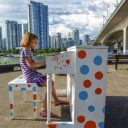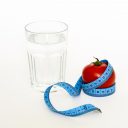

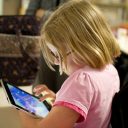
CITC Weekly Roundup: Friday 25 May
Here is our weekly round-up of global stories concerning children, their rights, and their wellbeing. This week we take a look at the different ways social media impacts children’s food intake, their mental health and puts them at risk...Read more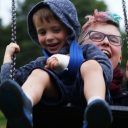
Boys with asthma risk more broken bones
Asthma is associated with childhood fractures for boys, but not girls, underlining the importance of bone health education says Cheryl Critchley, a writer for the University of Melbourne’s research publication platform, Pursuit. It is no secret...Read more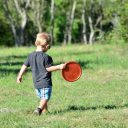
Childhood exposure to green space ‘may help’ brain development
A new study by Barcelona Institute for Global Health, Hospital del Mar and UCLA’s Fielding School of Public Health, says being raised in a greener neighbourhood can benefit a child’s developing brain. Around 250 children participated in...Read more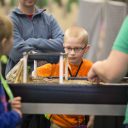
Early intervention increases educational gains for inner city children
Researchers followed the 30-year progress of 989 children who attended the Child-Parent Centers program in inner-city Chicago as preschoolers. Their findings suggest preventive interventions beginning in early childhood can promote long-term educational success that contributes...Read more
Child experts and advocates urge Facebook to scrap Messenger Kids
Child experts, educators and advocates plead with Mark Zuckerberg to pull the plug on Messenger kids an app for children under thirteen. They argue, “this new app will undermine children’s healthy development.” A team of over...Read more
Inactive kids at risk of falls and fractures in old age
Sedentary children are more likely to suffer musculoskeletal disorders like osteoporosis in later life making them more prone to debilitating falls and fractures in old age. Brittle bones, fractures and loss of muscle mass and strength...Read more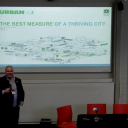
The first thousand days of a child’s life determines ‘surviving or thriving’
Research shows that the brain develops the most in the first thousand days of a child’s life. Alarmingly some funders and researchers are not paying attention to this critical age group. During the Child in...Read more
Everything to play for
Introducing more play space to cities can help tackle health, societal and environment issues, says Samuel Williams of the planning and design specialists, Arup. We need to take play seriously. We need to take play seriously...Read more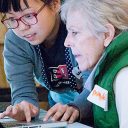
Age diversity for social cohesion
Creating public space that encourages social integration has never been more important. Here, Samuel Williams of planning specialists Arup, explains why child-friendly cities must adopt inter-generational design principles. ‘Designing cities for all’ is easy to say but if...Read more
Scottish children ‘among least active’
Scotland has been placed joint last in an international study of physical activity among children. The research found that Scotland had one of the best environments and infrastructure for outdoor play among the 38 nations that...Read more
Help children to walk and cycle to school
Now that millions of pupils have gone back to school, we call on the government to get more children walking and cycling the school journey. Currently, a portion of the “sugar tax” is set to fund...Read more
Backseat generation: breaking the vicious circle
Increasingly, parents are driving their children to school even when they live within cycling or walking distance. This is because the home-school trip has become, or is perceived to be, ever more dangerous … which...Read more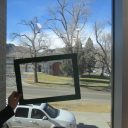
Biophilic cities: don’t forget the buildings!
Many recent movements have promoted the greening of cities and connecting children and families to nature. A growing body of research tells us that nature provides many benefits, including increased health and well-being. In participatory...Read more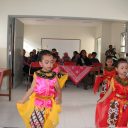
Development of child-friendly green spaces
If a city is to function properly, it needs to coordinate very diverse agendas related to land use, energy, water, waste, mobility, health and education, economic development, and the promotion of cultural vitality and social...Read more